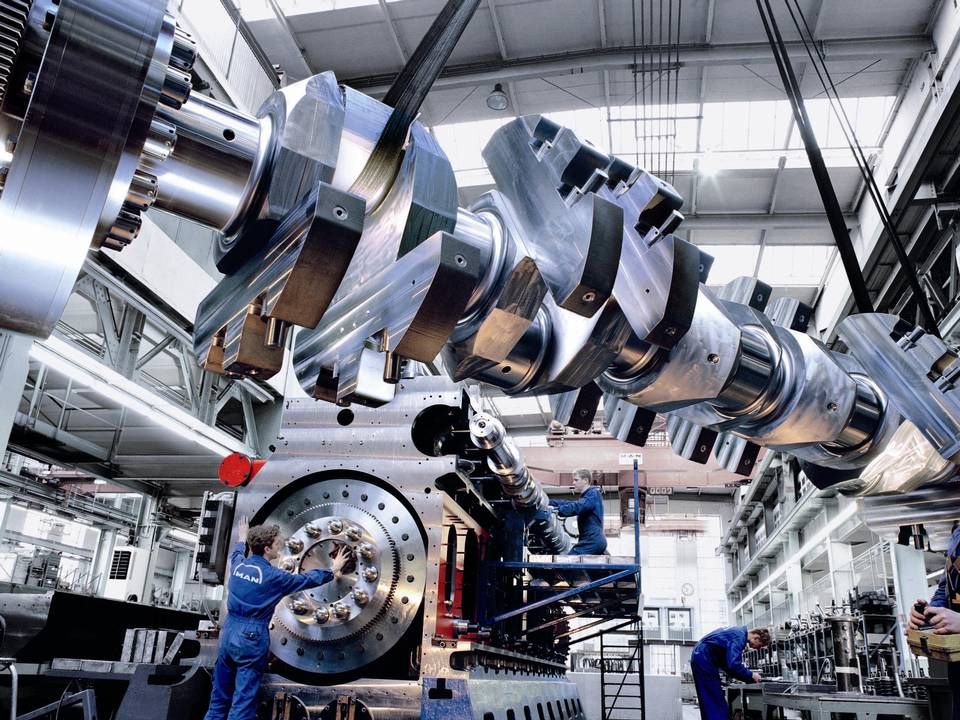Here is why MAN Diesel & Turbo used cheating software

What does a company do if a product does not live up to the standards agreed upon in the customer contract?
At MAN Diesel & Turbo, the answer for several years was to manipulate the test result data. The method was employed when some of the engine manufacturer's four-stroke marine diesel engines turned out to use more fuel than had been promised to customers, according to a ruling issued by the district court in Augsburg, Germany, against the engine manufacturer in 2013, which ShippingWatch has gained access to.
The scandal draws several parallels to emerging reports of cheating software used in diesel cars produced by the Volkswagen Group, which bought a majority stake in MAN group in 2011. In both cases, the engines' high emission rates have been deliberately covered up, and in both cases the manufacturers were aware that the engines did not live up to the standards promised to customers.
Try a free 40-day trial subscription to ShippingWatch
Where Volkswagen used the engine's own software to manipulate the data, MAN Diesel & Turbo took a different approach in which employees were able to program the test software to issue different data about the engines' fuel consumption than the actual numbers. And MAN does deny to ShippingWatch that the two cases of cheating are in any way related.
"Let me just state that MAN's inquiry into fuel consumption data was launched years before Volkswagen acquired a majority stake in MAN," writes Jan Dietrich Müller, Head of Group Communications and Marketing in MAN Diesel & Turbo SE.
Developed own cheating software
The court ruling describes how the manufacturer's marine diesel engines had been produced from a prototype, which had been produced individually and tailored to customer needs on a case by case basis. Engine performance, including fuel consumption, thus varied from engine to engine, with the contract stating a figure for how much diesel fuel each engine would consume.
The engines in question had been approved after a total of six tests, which were all performed at MAN Diesel & Turbo's plant in Augsburg. The test run lasted for several days, and minor adjustments were made and fuel consumption measured during these final tests. In the last part of the testing process, a customer or representative for the customer would be present to confirm that the test result corresponded to that which had been agreed upon in the contract.
In order to translate the test data to the same units used in the contract, test labs were equipped with software developed by MAN Turbo & Diesel itself. Until March 2011, the software had an extra function which with the help of a code that could be entered made it possible to manipulate the display and storage of fuel consumption.
Try a free 40-day trial subscription to ShippingWatch
If the tests made it apparent than an engine would not reach the fuel consumption rates promised by the contract, the consumption featured in the contract would be shown in the test results by using this extra function in the test lab's software.
The cheat software would be activated by the employee operating the test facility. The supervisors were also aware of the process, which was used in at least 92 cases from 2006 to 2011. It was not necessary to manipulate the test results for all engines in the series, as other engines lived up to the promised maximum consumption rates without extra help.
According to the Augsburg ruling, customers which purchased the engines subjected to the cheat software had approved the documented results believing that the measurements were accurate and true.
Whistleblower warns
When a new department head took over in February 2009, he soon discovered something was wrong. On February 17 2009 he told three members of the executive board of MAN Turbo & Diesel that the consumption targets promised by the contracts were in some cases not achievable in the test facility. However, the company did not take action to end the manipulation.
The ruling states that MAN's chairman first learned of the data manipulation in March 2011. The manufacturer subsequently launched an internal investigation into the extent of the fraud and also contacted the local authorities. On 25 May 2011, MAN officially announced that the manufacturer was investigating "irregularities" in the sale of four-stroke marine diesel engines. The last time test results were manipulated using the software was March 16 2011, according to the court ruling.
MAN relaunches engine production in Denmark
As of 18 February 2013, MAN Diesel & Turbo had paid out over EUR 4.854 million in compensation to customers. Written agreements were also settled for damages amounting to approximately EUR 24.827 million, and and other customers had been offered compensation for approximately EUR 13.19 million.
The district court in Augsburg fined MAN Turbo & Diesel EUR 8.2 million. Altogether, the fraud had cost man EUR 51.1 million by the time the court handed down its ruling. In comparison, MAN's production of four-stroke marine diesel engines delivered a revenue of EUR 371 million in 2010.
One case left to settle
In an email to ShippingWatch, MAN Turbo & Diesel informs that the group has subsequently revised and restructured its procedure for measuring fuel consumption at the Augsburg facilities.
"Furthermore, MAN Diesel & Turbo has - voluntarily and as a preventive measure - launched a third-party evaluation of the test facilities in Augsburg," writes Jan Dietrich Müller.
He explains that MAN Turbo & Diesel has settled cases with all affected customers bar one - Norwegian carrier I.M. Skaugen, which in 2000 ordered six of the engines for delivery between 2002 and 2003. The carrier is now suing for damages totaling almost USD 50 million.
"In short, we ask only that MAN acts transparently and informs us what they have done to our engines, and compensate us for our losses. No more, no less," the company's COO Tejre Ørehagen tells ShippingWatch.
MAN Diesel & Turbo and I.M. Skaugen each claim that the other party has abandoned attempts to settle the case outside the courtroom.
MAN sued in dispute about fuel cheating software
Related articles
MAN senior execs knew about cheating software
For subscribers
MAN relaunches engine production in Denmark
For subscribers
MAN sued in dispute about fuel cheating software
For subscribers





















